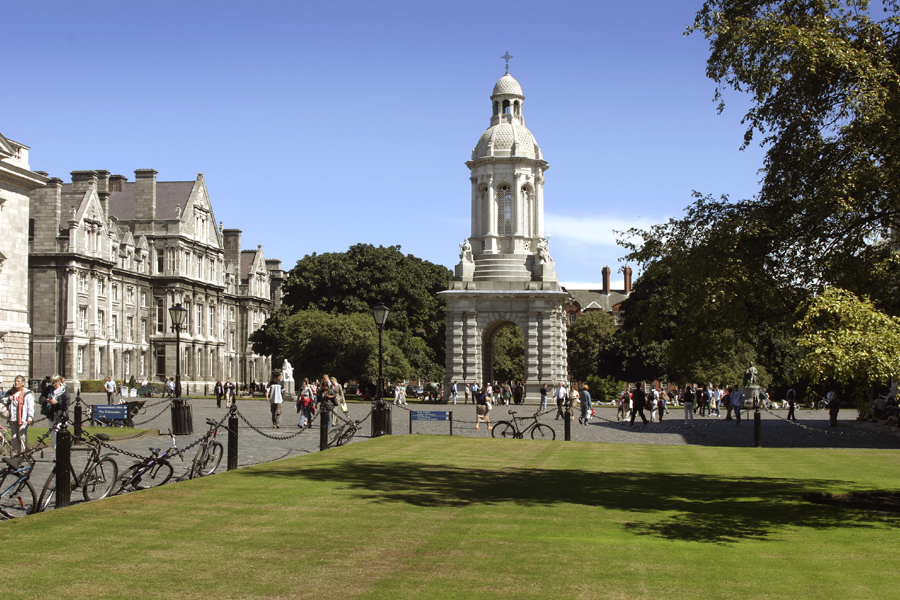Trinity’s downward trend in university rankings continues as the college slips four places to 108th in the QS world rankings. The university also dropped two places in the European rankings, to 37th.
Trinity fell outside the QS top 100 for the first time ever two years ago, sliding 16 places from 88th to 104th. The drop followed several years of worsening placement in the global university rankings. Despite the recent decline in the rankings, Trinity remains Ireland’s leading university.
University College Dublin (UCD), NUI Galway and University College Cork (UCC) have improved their standing in the world rankings this year, while Trinity is joined by Dublin City University (DCU) and University of Limerick (UL) in slipping slightly.
UCD climbed eight places to 185th, while NUI Galway rose by one place to 259th and UCC rose 28 places to 310th in the world. DCU moved down by seven places to 429th while UL slipped slightly to 524th.
The positions of Maynooth University (MU) and Technological University Dublin (TU Dublin), formerly DIT, didn’t change, remaining at 724th and 788th respectively.
In a press statement, Dean of Research Professor Linda Doyle highlighted third level under-funding as a continued issue facing Irisih universities, stating: “All Irish universities perform well, especially when the continued under-investment in the sector is taken into account and Trinity does particularly well in this regard. There will always be fluctuation in international university rankings but significant improvements will only be achieved with a sustained increase in investment.”
She added: “We are particularly pleased with our performance in academic reputation and citations per faculty as these factors underpin our position as one of the world’s leading research universities.”
Six criteria are considered in the QS World University Rankings: academic reputation, academic citations per faculty member, international faculty, international students, employer reputation, and faculty:student ratio. Trinity is the leading Irish institution in five out of the six categories.
Six years ago, Trinity ranked 61st in the QS world rankings, before slipping consistently over three years, reaching 98th. A slight change of fortune came in 2018, when Trinity improved its standing by ten places. The improvement was short lived, however, as College fell out of the top 100 the following year.
Trinity isn’t the only university to drop in global rankings over the past decade. In 2016, Prendergast issued a joint statement with UCD President Andrew Deeks blaming insufficient higher education funding on the declining placement of Irish universities and calling for Government action to address the funding crisis.
“Rankings have their limitations but the fact that our universities have fallen so far in recent years reflects the reality that successive governments have not invested sufficiently in Irish education,” they said.
Prendergast also said that Trinity is “underranked” at his State of the College address in November, arguing that the “reductive” view of what university ranking organisations “believe the role of a university is” is to blame for Trinity’s drop in the rankings in recent years.
He said that the rankings don’t consider how a university is delivering on its strategy and that the College’s mission to promote “a pluralistic, just, and sustainable society…is simply not measured by the rankings”.
Massachusetts Institute of Technology is named the world’s best university for an eighth consecutive year. Oxford University is the top ranked higher education institution in Europe.
Trinity recently dropped three places in the other major world university rankings list by Times Higher Education (THE), to 120th globally. Trinity is also the highest ranked Irish university by THE.






